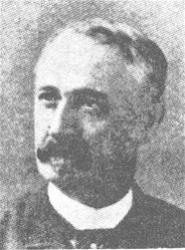Planning worship?
Check out our sister site, ZeteoSearch.org,
for 20+ additional resources related to your search.
- |
User Links
Search Results
En Cristo hallo amigo
Author: Charles W. Fry (1838-1882); Anónimo Appears in 2 hymnals Topics: La Vida Christian Gratitud; The Christian Life Gratitude Scripture: Romans 7:25 Used With Tune: THE LILY OF THE VALLEY
En Cristo hallo amigo
[En Cristo hallo amigo]
Appears in 240 hymnals Tune Sources: Melodia inglesa Tune Key: F Major Incipit: 13556 55312 11651 Used With Text: En Cristo hallo amigo
[En Cristo hallo amigo]
En Cristo hallo amigo
Hymnal: Himnario Adventista #131 (1962) Languages: Spanish Tune Title: [En Cristo hallo amigo]
En Cristo hallo amigo
En Cristo hallo amigo
Author: Charles W. Fry (1838-1882); Anónimo Hymnal: Himnario Adventista del Séptimo Día #366 (2010) Topics: La Vida Christian Gratitud; The Christian Life Gratitude Scripture: Romans 7:25 Languages: Spanish Tune Title: THE LILY OF THE VALLEY
En Cristo hallo amigo
Anonymous
Person Name: Anónimo Vers. esp. of "En Cristo hallo amigo" in Himnario Adventista del Séptimo Día In some hymnals, the editors noted that a hymn's author is unknown to them, and so this artificial "person" entry is used to reflect that fact. Obviously, the hymns attributed to "Author Unknown" "Unknown" or "Anonymous" could have been written by many people over a span of many centuries.
Anonymous
Charles W. Fry
1837 - 1882 Person Name: Charles W. Fry (1838-1882) Author of "En Cristo hallo amigo" in Himnario Adventista del Séptimo Día Charles William Fry United Kingdom 1837-1882. Born at Alderbury, Wiltshire, England, he was a bricklayer by trade, and was ultimately a successful building contractor, but also, like his father, a versatile musician, playing the violin, cello, piano, cornet, and harmonium. He lead and orchestra and band at the Wesleyan chapel in Alderbury. A Methodist, he also helped the Christian Mission in Salisbury. When he witnessed the abuse heralded against the Salvation Army when they established their ministry in 1878, he offered to serve as bodyguard for the Salvation Army workers. The next day Fry and his three sons showed up with their weapons, consisting of two cornets, a trombone, and a small tuba, which they played, in between fighting off the trouble-makers. Their music attracted a crowd for the preachers. Thus the first Salvation Army brass band was formed, and his family band accompanied Salvation Army founder, William Booth, in evangelism campaigns. Other musicians soon accompanied the Salvation Army band, and then, when William Booth saw how effective band music was, encouraged formation of other Salvation Army bands. Fry died at Glasgow, Scotland, the year after writing his hymn.
John Perry
Charles W. Fry
Will S. Hays

1837 - 1907 Person Name: William S. Hays (1837-1907) Composer of "THE LILY OF THE VALLEY" in Himnario Adventista del Séptimo Día William Shakespeare Hays USA 1837-1907. Born in Louisville, KY, he attended colleges in IN, TN, and KY, after which he became a reporter for the “Louisville Democrat” newspaper. He later became a columnist for the “Louisville Courier-Journal” after a stint as a steamboat captain on the Mississippi and Ohio Rivers. During the Civil War Hays was jailed in New Orleans, LA, for writing songs that supported the Confederate cause. Musically inclined, he wrote about 350 songs. The song “Mollie Darling” (1872) sold a million copies. As with some other hymns, the tune of his popular vaudeville song, “Little old log cabin” was adapted to the new hymn by the lyricist, C W Fry, who wrote “Lily of the valley”. He died in his hometown, Louisville, KY.
John Perry
Will S. Hays


 My Starred Hymns
My Starred Hymns


